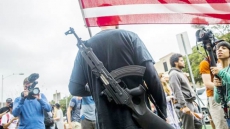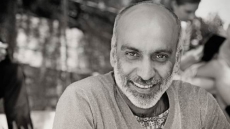WASHINGTON — Republican front-runner Donald Trump faces a week of critical primary elections that could see his political dominance grow at the risk of even wider party divisions in one of the most chaotic presidential campaigns in generations.
Perhaps most crucial is Tuesday's winner-take-all contest in Ohio, where the billionaire real estate mogul is up against the state's popular governor, John Kasich. Trump has called the governor "a baby." Kasich has suggested that Trump and the violence at some of his rallies represent a "dark side" of American society.
Also at stake Tuesday are Illinois, Missouri, North Carolina and Florida, with the total number of delegates in play accounting for more than a quarter of the 1,237 necessary for the party's nomination.
Texas Sen. Ted Cruz argues that only he can keep Trump from reaching the required majority of delegates, while Florida Sen. Marco Rubio tries merely to remain relevant, hoping home-state voters defy recent polls and give him a reason to stay in the race. Rubio said Monday he would "shock the country" with a victory in Florida despite Trump's big lead there.
On Monday, Cruz said a Trump nomination guaranteed four more years of Democrats' control of the White House. "We elect Hillary Clinton and we destroy the country if Trump is the nominee," he said at an Illinois event.
Former 2008 vice-presidential nominee Sarah Palin, who has endorsed Trump, pulled out of a Florida event for him on Monday. Trump's presidential campaign said her husband, Todd, had been "in a bad snow machine accident" Sunday night and was hospitalized.
Trump has tried to shift attention away from the intense criticism that followed Friday's harrowing scenes in Chicago, where he cancelled a scheduled rally amid sometimes violent confrontations among his supporters, protesters and authorities. At a Saturday rally, a protester stormed the stage as Trump spoke, only to be subdued by Secret Service agents.

"We're not provoking. We want peace. ... We don't want trouble," Trump told a crowd in Illinois at one of three events he held Sunday, with occasional interruptions from protesters. None led to violence. Protesters briefly interrupted a Trump event again on Monday but were shouted down by supporters.
A skeptical Kasich reversed his months-long practice of avoiding the topic of Trump. Speaking with The Associated Press, he read a list of Trump quotes compiled by an aide that included comments that his audiences should "hit back" a little more and that he'd like to "punch" a protester "in the face."
Kasich later told a crowd in Ohio without mentioning Trump: "Do we go to the dark side, with negativity, the gnashing of teeth ... or do we go to the hopeful and the light side?"
Trump answered by portraying Kasich as weak and deliberately mispronounced his rival's Czech surname.
Among the Democrats, Hillary Clinton carries an edge of more than 200 pledged delegates into Tuesday's contests and could effectively block rival Bernie Sanders' path to victory with a sweep of the large states on Tuesday.

While the delegates will be awarded proportionately, Clinton's support with superdelegates — elected officials and party leaders free to back whomever they'd like — puts her in a strong position to win the nomination.
According to an Associated Press analysis, Clinton holds 1,231 of total delegates, more than half the amount needed to clinch the nomination. Sanders has 576.
But Sanders pulled an upset last week in Michigan, where polls had showed Clinton leading by as many as 20 points. Sanders senior strategist Tad Devine said he sees no scenario where the Vermont senator gets out of the race before the party convention in July.


